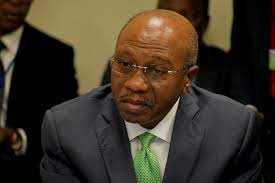
The Central Bank of Nigeria CBN says the non-remittance of dollars to foreign reserves by the Nigeria National Petroleum Corporation (NNPC) is responsible for the naira’s free fall in the official and parallel markets.
On Thursday, July 28, the naira traded for N700/$1 at the parallel market and N415.96/$1 at the official market.
In a report released, the apex bank said the NNPC and its subsidiaries are the sole managers of crude oil which accounts for more than 80 percent of Nigeria’s Foreign Exchange (forex) earnings. The CBN in the report pointed that it does not print forex and cannot be the ones to make it available.
The report titled “The forex question in Nigeria: Fact sheet”, reads in part
“Domestically, there has been zero dollar remittance to the country’s foreign reserve by the NNPC, insisting that the CBN does not print dollars.
As noted by the CBN Governor, Godwin Emefiele, monetary policy alone cannot bear all the burden of the expected adjustments needed to manage these difficulties. It’s our collective duty as Nigerians to shore up the value of the naira.”
According to the apex bank, Nigeria earns foreign exchange from four sources – proceeds from oil exports; proceeds from non-oil exports; diaspora remittances, and Foreign Direct/Portfolio Investments (capital flows). The bank noted that the past six years have been characterized by two recessions triggered by a slowdown in the global economy as well as the effects of COVID-19 pandemic.
“Considering Nigeria’s heavy dependence on oil exports for foreign exchange earnings and government revenue, the impact of the oil market crash severely affected the government’s naira revenue and other macroeconomic aggregates including economic growth. Hence, the rate of exchange between the naira and other currencies has widened over the past few years.”the report in part read
On the key facts about the economy, the apex bank said the CBN issues legal tender in Nigeria (naira) and does not print foreign exchange. It said the pressure on the naira has both local and global perspectives.
“There is un-abating demand for foreign exchange for both goods and services, thereby creating a demand challenge. The current exchange rate of the Naira, like other major currencies, is not driven by cryptocurrencies, given the volatility in the cryptocurrency space, which lost over two trillion in the past two years in face of high inflation.


